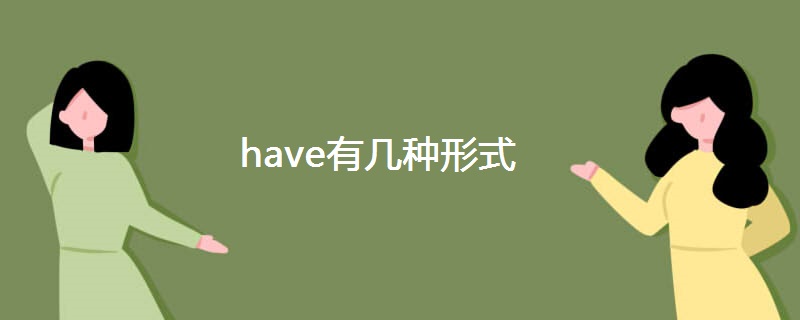-
-
have有:have、has、had,三种形式分别为:第一、二人称单数,第三人称单数,一般过去式。

have的几种形式
1、主语为:I(我),
You(你),
You(你们),
We(我们),
They(他们)时,使用have;
例如:I
have
much
work
to
do.
2、主语为:he(他),
she(她)时,用has;
例如:He
has
some
books
on
the
shelf.
3、当表示过去时,就用had。
例如:I
had
100
yuan
three
days
ago,
but
now
I
run
out
of
them.
其实have的用法还有很多,譬如
have
done(完成时),
have
sth
done(让某事完成,某事被完成)
have的的用法
助动词have以及它的变体has, had等的主要用法如下:
1. have +过去分词,构成完成时态。如:
He has left for Japan. 他已去了日本。
We’ve just done the washing-up. 我们刚洗完碗碟。
Poor Jim has just had an accident. 可怜的吉姆刚出了个事故。
I have had this car for three years. 这辆汽车我已用了3年了。
By the end of last month, they had finished the work. 上月未他们就已经完成了工作。
2. have + been +现在分词,构成完成进行时。如:
I have been studying English for 8 years. 我学英语已达八年了。
The children have been having a lot of run. 孩子们一直玩得很开心。
We had been doing business with each other for years before we quarreled. 在吵翻之前,我们多年来在业务上一直来往。
By this time next year, we will have been doing business with each other for 20 years. 到明年这时候,我们的业务住来就满20年了。
I woke up—I had been having a bad dream. 我醒了,我做了个噩梦。
3. have+been +过去分词,构成完成式被动语态。如:
English has been taught in China for many years. 中国教英语已经多年。
I have been made redundant, so I’m going abroad. 我被定成了超编人员,所以我打算出国。
Thousands of pounds have been spent on the new hospital. 这家新医院花费了数千英镑。
None of my friends have been invited to the party. 我的朋友中没有一个被邀参加晚会。
All means have been used to get him to change his mind. 为了转变他的想法,所有的办法都用过了